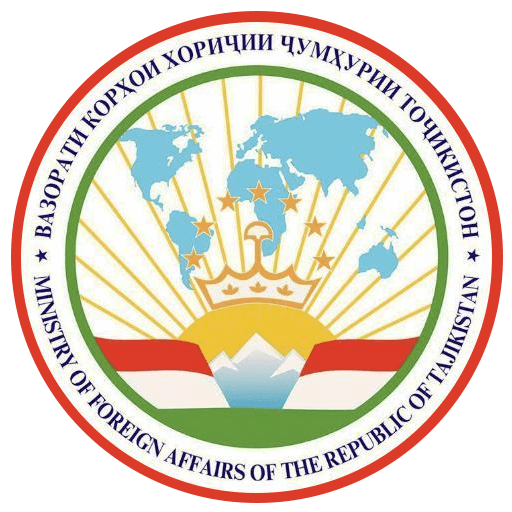Capital – Dushanbe
Location – the South-east of Central Asia
Territorу – 143.1 thsd. square kilometers
Population – more than 8 million people
Currency – somoni, introduced in October, 2000
State borders – Length: 700 kilometers from west to east, 350 kilometers from north to south. In the west and north, Tajikistan has borders with Uzbekistan (1332,9 kilometers) and Kyrgyzstan (about 987 kilometers); in the south – with Afghanistan (1332,9 kilometers and in the east – with China (494,95 kilometers).
Climate – continental. January from +220C (Panj) to -610C (Lake Bulunkul), July from -80C (Lake Bulunkul) to +450C (Panj).
The geography of the Republic of Tajikistan is mountainous with heights above sea level varying between 300 and 7495 meters. Mountains belonging to the highest ranges of Central Asia make up 93% of the total area of the country. There is the Farghona valley in the north, while in the northwest and the central parts there are the Turkmenian, Zarafshon, Hisor and Oloy mountain ranges. The southeast boasts the impressive Pomir range (its highest mountain, the Somoni’s Peak, with an altitude of 7495 meters, is one of the highest summits of the world); while the southwest has the Vakhsh, Hisor and other valleys.
The highest mountains
Height above sea level, meters
I.Somoni’s Peak 7495
Abuali Ibn Sino’s Peak 7134
Korjenevskaya’s Peak 6974
Moscow’s Peak 6785
K.Marx’s Peak 6726
Garmo’s Peak 6595
Soviet Officer’s
Peak 6233
Engel’s Peak 6510
Vudor’s Peak 6132
North Muzkol’s Peak 6128
Mayakovskiy’s Peak 6096
Pakhor’s Peak 6083
The Republic of Tajikistan has an abundance of lake’s and rivers. There are about 947 rivers longer than 10 kilometers with a total length of more than 28500 kilometers. The rivers account for 60% of all hydro-resources of central Asia.
The longest rivers (length, km through the territory of Tajikistan)
Panj 921
Amu-darya 65
Sir-darya 185
Zerafshan 306
Bartang – Murghab 491
Vakhsh 524
Kofarnihon 387
Gund 296
Tajikistan’s high mountains accommodate great supplies of ice and snow. The line of perpetual snow is situated at height between 3500 and 3600 meters in the west and rises up to 5800 meters in the east. The total area of the glaciers in Tajikistan covers more than 8476 square kilometers. There are over the thousand registered glaciers with a length of more than 1.5 kilometers. Sixteen glaciers (such as Fedchenko and Grumm-Grzymailo glaciers) have length of more than 16 kilometers.
Main glaciers
Square, km2 Capacity, km³
Fedchenko 156,0 93,6
Garmo 114,6 —
Vitkovskiy 50,2 6,882
Academy of sciences
of the USSR 48,0 5,242
Nalivkin 45,2 8,588
Bivachiy 37,0 8,05
Grumm-Grzhimailo 37,0 19,84
Tajikistan also abounds in lakes. There are some 1300 lakes with a total surface area of 705 km2. Karakul, Sarez and Yashikul are the largest expanses to have been created naturally. The lakes are mainly located at height of 3500 meters.
Largest lakes (surface area, km2)
Karakul 380,0
Sarez 79,64
Zorkul 38,9
Yashikul 38,0
Shorkul 16,3
Largest reservoirs Surface area, km2 Capacity,mln.m3
Kairokum 520,0 4160
Norak 106,0 10500
Tajikistan’s soil, and its flora and fauna are determined by the alpine environment. The flora abounds in wild fruit-bearing trees and in numerous species of plants, which are widely used by the population
Animals are also abundant. Tajikistan boasts some 80 species of mammals, more than 365 kinds of birds, 49 kinds of reptiles, 40 kinds of fish, 10 thousands of various insects. One can observe such predators as snow leopards, lynx, bears, hyenas, otters, wolves, foxes and martens, as well as deer and rock-goats.
At present, there are 4 natural reserves (“Tigrovaya balka”, “Romit”, “Dashti Jum”, “Zorkul”), 13 sanctuaries and 2 national parks in Tajikistan. The total protected are makes 21% of the total territory of the republic.
Tajikistan is also richly endowed with mineral deposits. Currently, more than 400 deposits have been identified, about 100 of which are being exploited. Some 40 kinds of mineral raw materials are being extracted, such as fossil minerals (about 10), ores and non-metallic resources (about 90)/
Tajikistan has the largest coal reserves in Central Asia. The estimated total geological coal reserves amount to some four billion tons. Eighty percent is coking coal. Deposits have been discovered for many rare and precious metals such as zinc, lead, bismuth, molybdenum, tungsten, gold, silver, antimony, mercury and fluorite, as well as gas and petroleum, among others.
Agricultural capacities of Tajikistan
Arable lands – 864,4 thousands ha.
Irrigated lands – 592,3 thousands ha.
Total sown areas – 900,2 thousands ha.
Including grain legumes – 401,9 thousands ha.
Total industrial crops – 294 thousands ha.
Including cotton-plant – 262,9 thousands ha.
Potato plant – 27,9 thousands ha.
Vegetables – 35,8 thousands ha.




